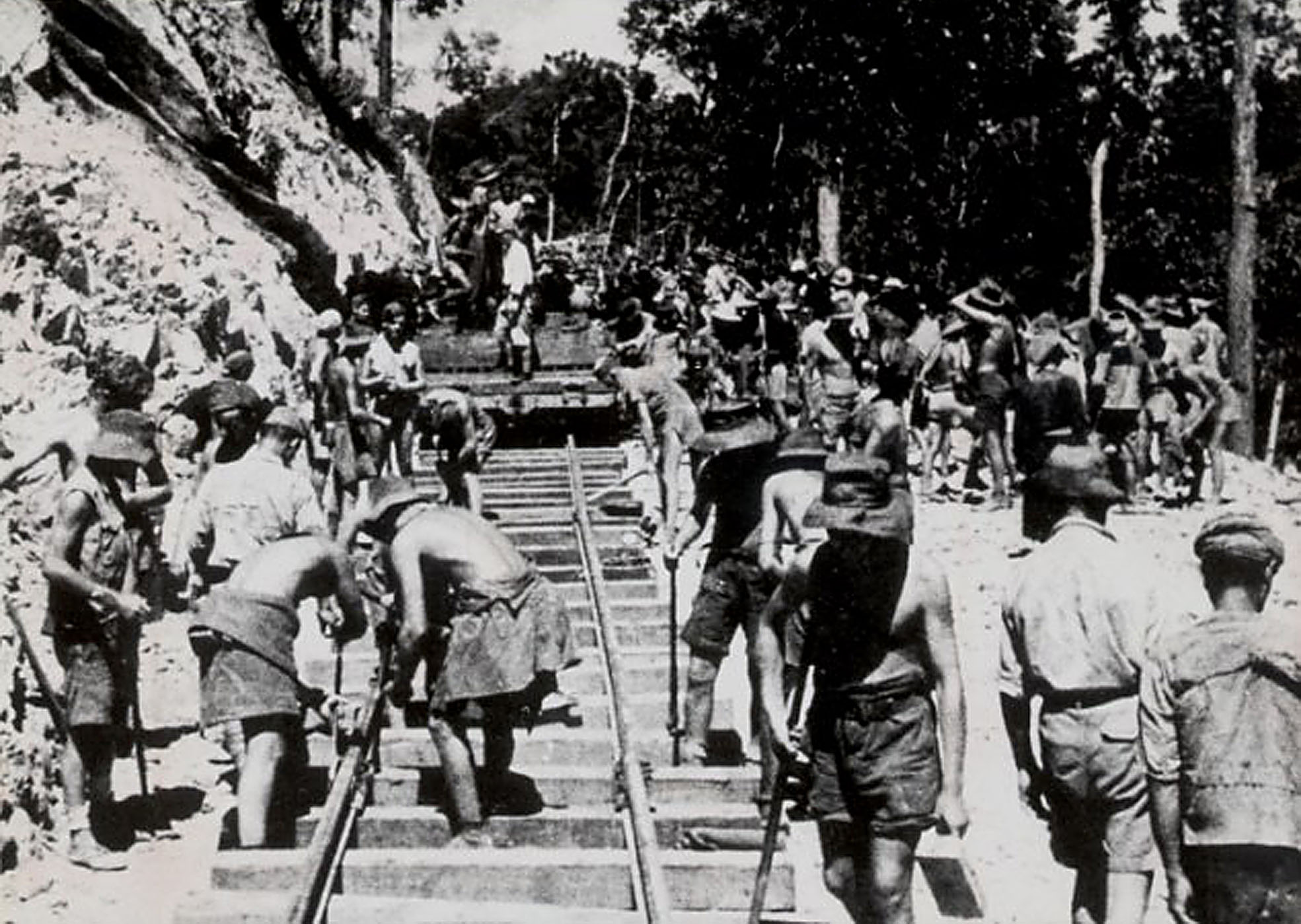The time line of Richard Flanagan's new novel, "The Narrow Road to the Deep North," slips back and forth from prewar Tasmania, Melbourne and Adelaide to postwar Sydney, among other locations. Yet there is only one stark, unrelenting and everlasting present — "the Line," the 415-km-long Burma-Thailand railway that was built between June 1942 and October 1943 by more than 300,000 prisoners of war under the command of the Japanese. One in three prisoners' lives was lost on that arch-brutal forced march. Of those who perished, 90 percent were Asian, primarily Burmese and Malayans, but also Chinese, Tamils, Thais and Javanese. Nearly 3,000 Australians were among those killed. Richard Flanagan's father was one of the lucky POWs who survived.
The novel revolves around the life of physician Dorrigo Evans, a character modeled after war hero Edward "Weary" Dunlop. Dunlop, who looked after his men as they struggled under the most heinous conditions to clear jungle, break rock and lay rail from Bangkok to Rangoon, present-day Yangon, called his comrades "living skeletons." As his men lay dying of malaria, beri-beri and cholera, he bartered with and cajoled the Japanese captors, some of them sadists who took the greatest pleasure in tormenting, torturing and beheading captives. After the war, Dunlop returned to an illustrious career in Australia. He openly forgave the cold-blooded and tyrannical Japanese who tortured and murdered the men on the Burma-Thailand railway.
The mateship — or absence of it — among the Aussie POWs is the theme that propels the story. There is Rabbit Hendricks, who makes sketches and drawings of camp life, creating a backdrop for this heart-rending drama. Tiny Middleton works on the construction of the railway with a prodigious energy, "to show them little yellow bastards what a white man is"; but his overfulfilling of work quotas leads the Japanese to set new limits, and for this he is despised by his less fit fellow prisoners. In the group is also the racist Rooster MacNeice, who passes time memorizing parts of "Mein Kampf." The most savage beating is given to Darky Gardiner. He eventually crawls to the latrine and drowns face down in it.



